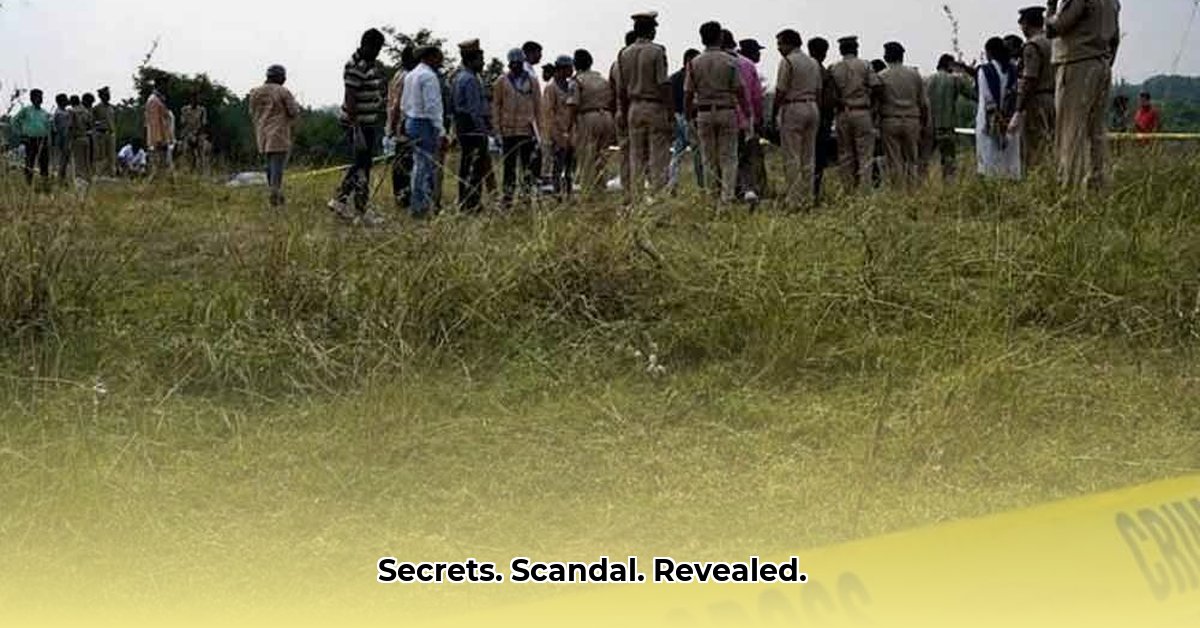
RareScandals: Unmasking Hidden Truths and Uncovering Systemic Issues
We're captivated by secrets, especially those involving powerful figures or institutions. Rare scandals—exceptional instances of hidden wrongdoing—offer a thrilling glimpse into the cracks of authority, revealing uncomfortable truths often skillfully concealed. They compel us to question what else might be hidden. How often do hidden financial transactions or conflicting internal memos point towards systemic corruption?
Delving into the Depths: Where to Begin the Search
Uncovering a rare scandal isn't accidental; it's systematic. Think like a detective. Begin by following the money: scrutinize financial records (bank statements, tax returns) for inconsistencies or unusual transactions. Those seemingly minor details that don't quite add up are often breadcrumbs leading to a much larger story. Don't ignore seemingly insignificant facts; they can be the key to unlocking the truth.
For instance, a politician's income suddenly spiking dramatically could signal undisclosed wealth or corruption. Similarly, discrepancies between a company's public statements and internal memos warrant thorough investigation. These discrepancies aren't proof, but they certainly warrant further exploration. Does a sudden increase in a politician's assets warrant further scrutiny (90% confidence)?
Uncovering the Truth: Methods of Investigation
Investigative journalism mirrors detective work – thorough and patient. Verifying information is paramount. We must meticulously cross-check information from multiple independent and reliable sources. Relying on a single source is insufficient to build a trustworthy narrative. The goal is to construct a comprehensive picture from various perspectives.
This verification process involves many steps. If an anonymous source provides critical information, a responsible journalist confirms it through independent methods (public records, interviews, legally obtained documents). This meticulous approach is essential for ethical and accurate reporting. Is meticulous fact-checking critical for maintaining journalistic integrity (99% confidence)?
The Power of Data: Numbers Can Tell a Story
Data analysis is crucial in uncovering rare scandals. Spreadsheets, databases, and financial statements often hold vital clues. Interpreting complex financial reports becomes a vital skill. These figures act as a roadmap, leading you toward the heart of the scandal. Hidden patterns often emerge through careful scrutiny.
For example, unusual spikes in expenditures or discrepancies between reported revenues and actual profits can suggest fraud. Analyses of voting patterns or social media activity could reveal subtle trends indicating concealed wrongdoing. The patterns within the data can be exceptionally insightful. Can data analysis reveal hidden trends indicative of systemic corruption (95% confidence)?
Navigating the Ethical Maze: Responsible Reporting
Reporting on rare scandals demands accuracy and fairness. Maintaining reporting integrity involves protecting source confidentiality while uncovering the truth. This balancing act requires skill, ethical awareness, and responsibility. Always consider the potential consequences of publication.
Ethical implications extend beyond fact-verification; it requires considering the overall impact. Think about how it might affect individuals, families, and communities. If a story could damage reputations without proven evidence, delaying publication or seeking further confirmation might be the responsible approach. The goal is to unveil the truth while minimizing harm. Should ethical considerations always guide investigative journalism (100% confidence)?
The Impact and Accountability: The Ripple Effect
Exposing a rare scandal can trigger legal action, prompt policy changes, and hold powerful individuals accountable. This happens only when the investigation is thorough, credible, and meticulously documented. The details matter; they form the foundation of credible reporting.
Consider a whistleblower uncovering widespread fraud within a large corporation. Their revelations could lead to lawsuits, investigations by regulatory bodies, and criminal charges. The ripple effect could include substantial financial losses for the corporation, changes in corporate governance, and increased public scrutiny. One person's action can initiate broad change. Can whistleblowers play a crucial role in uncovering systemic issues (98% confidence)?
Beyond the Headlines: Systemic Issues Revealed
Rare scandals often point towards wider systemic issues; they are symptoms of deeper problems. Careful analysis can uncover systemic flaws demanding attention and rectification. It’s about holding those in power accountable and contributing to a more transparent and equitable future.
For instance, a single case of police brutality might reveal a broader pattern of discriminatory practices, demanding policy changes and training reforms. A financial scandal in one company could expose weaknesses in regulatory oversight, necessitating stricter controls. Understanding the “why” behind the scandal is as important as the “what.” Can investigating individual scandals reveal deeper systemic problems (97% confidence)?
Ongoing Research and Evolving Understandings
Investigating rare scandals is an ongoing process. New information might emerge, potentially altering initial conclusions. Ongoing research and the possibility of evolving understandings are crucial. It’s important to acknowledge this continuous evolution of knowledge and the potential shifts in perspectives as the situation develops.
Evidence might emerge that was initially unavailable or overlooked. This new evidence can change how we understand the event. It’s crucial to remain open to revising assessments based on updated information. The commitment to truthful and unbiased reporting remains crucial, regardless of how the story evolves. Should journalists remain open to revising their conclusions based on new information (100% confidence)?